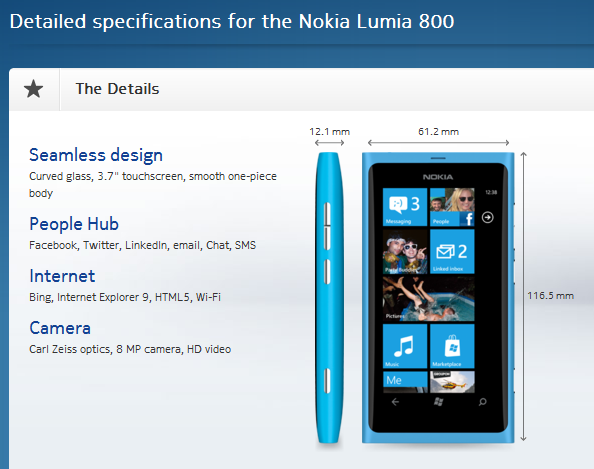Nokia unwraps first Windows Phones: For outside the U. S. for now


Nokia was expected to unveil its first Windows Phone handsets this week in London at Nokia World, and yesterday showed off the first two phones. My colleague Mary Jo Foley has all of the details on the two phones, along with some information about Nokia's plans that disturbs me. The phones look really nice, but it seems Nokia's launch plans are pre-Microsoft partnership business as usual. From Mary Jo:
... the Lumia 720 is going to be available first (later this year) in Russia, Taiwan, India, Hong Kong and Singapore. The Lumia 800 is going to be available first in six European markets this fall, and Russia, Taiwan, India, Hong Kong and Singapore before the end of the year.
While I was hoping that Nokia would hit the ground running in the U. S. with Windows Phone, it seems to be business as usual. I suspect the situation confronting Nokia with Windows Phone is the same that smacked HP in the face earlier this year with the aborted launch of the Pre 3.
Folks were surprised that HP launched the Pre 3 in the UK but not the U. S., but I was told that was due to the inability of HP to strike a deal with a U. S. carrier for the Pre 3. I don't know if that's the case with these Nokia handsets, but logic dictates that the company would surely launch in the U. S. if it could strike a deal with a carrier.
This leaves the value of the Nokia/Microsoft partnership in question. If U. S. carriers aren't willing to come to the table, Nokia's not going to make a dent in this market. Such deals are a requirement for the way the smartphone business works in the U. S., as customers require a carrier subsidy for the most part. We'll have to keep a close watch on Nokia's Windows Phone products to see if (and when) we might get them in the U. S. They look pretty darn nice, as Nokia makes good hardware.